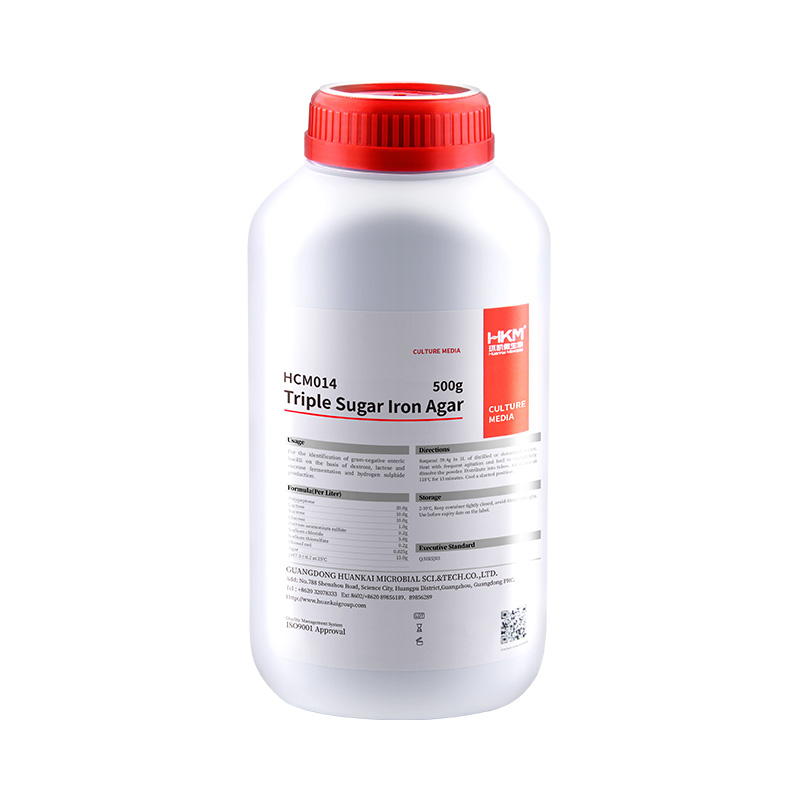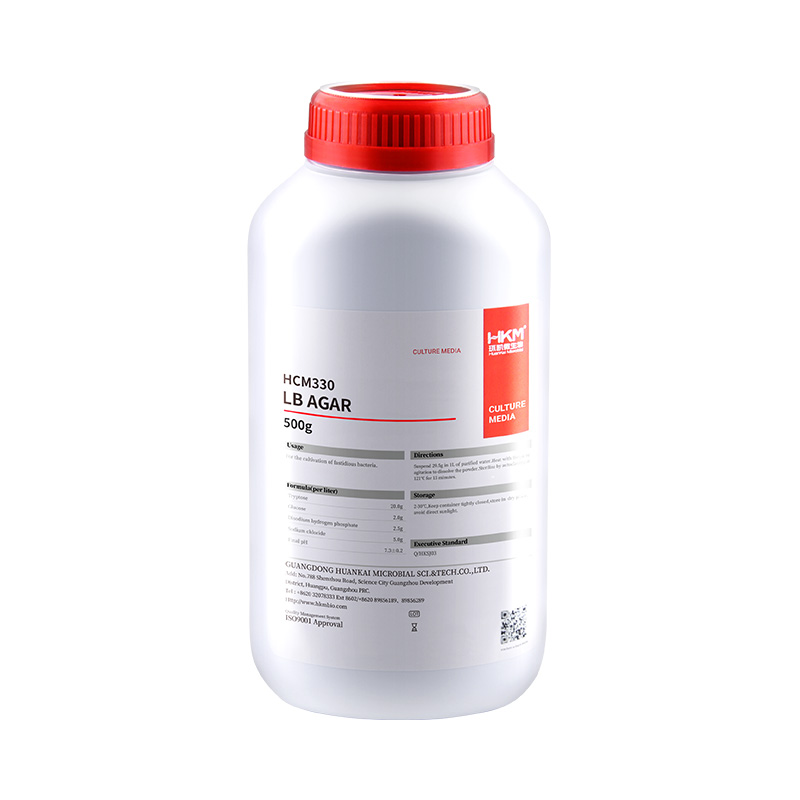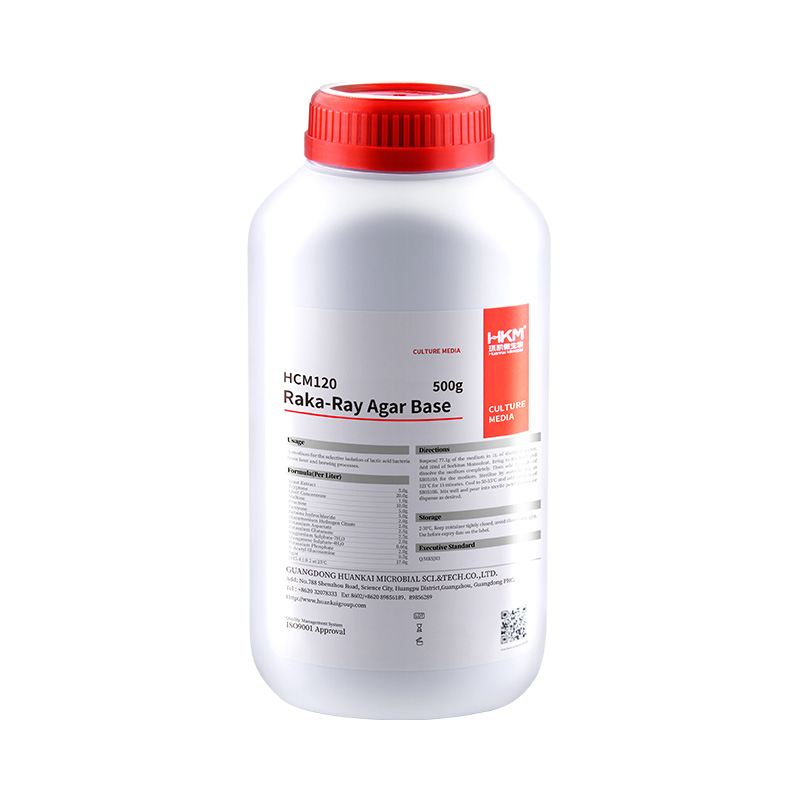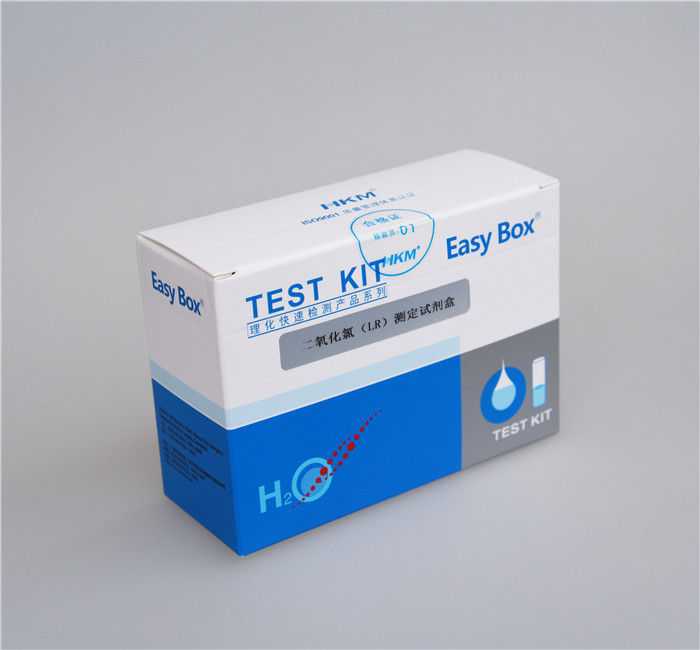HCM014 Triple Sugar Iron Agar
$11.98-18.42
Intended Use For the identification of gram-negative enteric bacilli on the basis of dextrose, lactose and sucrose fermentation and hydrogen sulphide production. Principle and Interpretation ……
Introduction
Intended Use
For the identification of gram-negative enteric bacilli on the basis of dextrose, lactose and sucrose fermentation and hydrogen sulphide production.
Principle and Interpretation
Polypeptone provide nitrogenous compounds. Sodium chloride maintains osmotic equilibrium. Lactose, sucrose and dextrose are the fermentable carbohydrates. Sodium thiosulphate and ferrous ions make H2S indicator system. Phenol red is the pH indicator. Organisms that ferment glucose produce a variety of acids, turning the colour of the medium from red to yellow. More amount of acids are liberated in butt (fermentation) than in the slant (respiration). Growing bacteria also form alkaline products from the oxidative decarboxylation of peptone and these alkaline products neutralize the large amounts of acid present in the butt. Thus, the appearance of an alkaline (red) slant and an acid (yellow) butt after incubation indicates that the organism is a glucose fermenter but is unable to ferment lactose and/or sucrose. Bacteria that ferment lactose or sucrose (or both), in addition to glucose, produce large amounts of acid enables no reversion of pH in that region and thus bacteria exhibit an acid slant and acid butt. Gas production is detected by the presence of cracks or bubbles in the medium, when the accumulated gas escapes. Thiosulphate is reduced to hydrogen sulphide by several species of bacteria and H2S combines with ferric ions of ferric salts to produce the insoluble black precipitate of ferrous sulphide. Reduction of thiosulphate proceeds only in an acid environment and blackening usually occurs in the butt of the tube.
Formulation
| Ingredients | /liter |
| Polypeptone | 20.0g |
| Lactose | 10.0g |
| Sucrose | 10.0g |
| Glucose | 1.0g |
| Ferrous ammonium sulfate | 0.2g |
| Sodium chloride | 5.0g |
| Sodium thiosulfate | 0.2g |
| Phenol red | 0.025g |
| Agar | 13.0g |
| pH7.3±0.2 at 25°C | |
Page 1 / 2
Preparation
Suspend 59.4 g in 1 L of distilled or deionized water. Heat with frequent agitation and boil to completely dissolve the powder. Distribute into tubes. Autoclave at 118 °C for 15 minutes. Cool a slanted position.
Quality Control
Cultural characteristics observed after incubation at 35-37°C for 24h
Storage and Shelf Life
2-30°C,Keep container tightly closed, avoid direct sunlight. Use before expiry date on the label.
Precautions
1. When weighing the dehydrated medium, please wear masks to avoid causing respiratory system discomfort 2. Keep container tightly closed after using to prevent clumping.
Waste Disposal
Microbiological contamination was disposed by autoclaving at 121°C for 30 minutes.
Revision
On June 14, 2024
References
BAM Media M149: Triple Sugar Iron Agar (TSI) Medium 1




